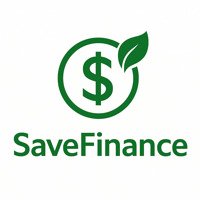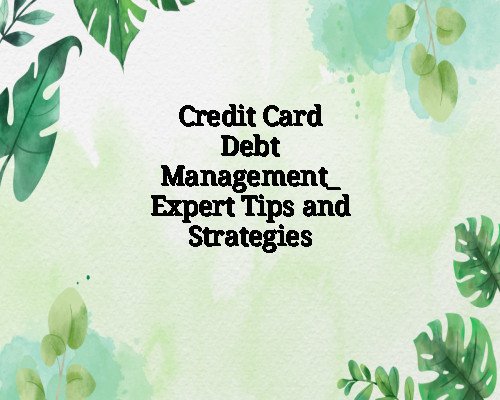Credit Card Debt Management: Expert Tips and Strategies
Master credit card debt with proven expert strategies to reduce balances, avoid interest traps, and regain financial control for long-term peace of mind.
Understanding the Credit Card Debt Crisis
Millions of Americans grapple with credit card debt, often resulting from overspending, emergencies, or poor financial planning. The average household carries thousands in revolving balances, which accrue high interest charges and can spiral out of control. Understanding the root causes and consequences of this debt is the first step toward breaking the cycle.
How Credit Card Debt Builds Up
Credit cards offer convenience but can be deceptively costly. Here’s how debt accumulates:
-
Minimum payments: Only a small percentage of the balance is due monthly, stretching repayment over years.
-
High interest rates: APRs typically range between 15% and 25%, compounding debt rapidly.
-
Multiple cards: Managing several accounts increases the chance of missed payments and fees.
Without a plan, credit card debt can impact your credit score, financial goals, and mental well-being.
The Financial Impact of Credit Card Debt
The long-term implications of credit card debt are serious:
-
Credit score damage: High utilization and late payments lower your credit score.
-
Higher loan costs: Bad credit leads to higher interest rates on mortgages, auto loans, and insurance.
-
Stress and anxiety: The emotional toll of unmanageable debt can affect relationships and quality of life.
-
Opportunity cost: Money spent on interest could go toward savings, investing, or building wealth.
Expert Tips for Managing and Eliminating Credit Card Debt
With a focused approach and consistent effort, you can take control of your debt. Here are expert-recommended strategies:
1. Stop Using Your Credit Cards
The first rule of debt management: stop digging. Halt all new charges by:
-
Removing cards from your wallet
-
Deleting card info from online stores
-
Using a debit card or cash for essential purchases
2. Create a Comprehensive Budget
Track every dollar to understand your spending habits:
-
List all income sources
-
Categorize expenses (fixed and variable)
-
Identify areas to cut back (dining out, subscriptions, luxury items)
Redirect savings to debt payments. A budget is your roadmap to financial freedom.
3. Build an Emergency Fund
Start with a small goal ($500–$1,000) to avoid relying on credit cards during unforeseen expenses. This safety net keeps your debt from growing and builds financial resilience.
4. Choose a Repayment Strategy
There are two primary debt payoff methods:
Snowball Method
-
Pay off the smallest balance first
-
Gain momentum through quick wins
-
Motivation increases with each cleared account
Avalanche Method
-
Focus on the highest interest rate debt first
-
Minimizes total interest paid
-
Slower progress, but more cost-effective
Choose the method that best suits your personality and financial goals.
5. Negotiate Lower Interest Rates
Call your credit card issuers and request a lower APR. Be polite, mention your payment history, and ask about any promotional rates. Lower rates mean more of your payment goes toward the principal balance.
6. Consider a Balance Transfer
A balance transfer lets you move high-interest debt to a card with 0% APR for a promotional period (usually 12–18 months). This tool can accelerate your payoff plan if:
-
You qualify for a card with no or low transfer fees
-
You commit to paying off the balance before the promo ends
Avoid new purchases on the card to stay focused on your goal.
7. Consolidate Debt with a Personal Loan
Debt consolidation loans combine multiple debts into one monthly payment at a lower fixed interest rate. This simplifies repayment and can reduce interest costs. Before applying, compare loan offers and calculate the total repayment amount to ensure savings.
8. Use Windfalls Wisely
Tax refunds, bonuses, and other unexpected income should be directed toward your credit card debt. These lump sums can significantly reduce your balance and shorten your debt-free timeline.
9. Cut Spending Aggressively
Reevaluate your lifestyle for temporary sacrifices that bring long-term benefits:
-
Pause subscriptions and memberships
-
Eat meals at home
-
Shop secondhand
-
Embrace minimalism
Every dollar saved brings you closer to financial freedom.
10. Increase Your Income
Boosting income accelerates debt payoff. Consider:
-
Freelancing or part-time work
-
Selling unused items
-
Monetizing a hobby or skill
Apply all extra income directly to your credit card balances.
The Role of Credit Counseling
If your debt feels overwhelming, a certified credit counselor can help. These professionals:
-
Review your financial situation
-
Offer personalized advice
-
Negotiate with creditors
-
Create a structured repayment plan
Many nonprofit credit counseling agencies provide free or low-cost services. This step can be life-changing for those unable to manage debt alone.
Debt Management Plans (DMPs)
For more severe debt, a DMP may be the right solution. Under a DMP:
-
You make one monthly payment to the counseling agency
-
They disburse payments to your creditors
-
Interest rates may be reduced or waived
-
Late fees can be forgiven
Most plans last 3–5 years, during which you must stop using credit cards. A DMP offers structure and support for people ready to commit to a debt-free future.
When Bankruptcy Might Be Considered
As a last resort, bankruptcy offers a legal path to discharge or restructure debt. It’s not a quick fix and carries long-term credit consequences, but in some cases, it may be the only viable option. Always consult a qualified bankruptcy attorney to understand the implications and alternatives.
Staying Debt-Free: Long-Term Habits That Work
Eliminating credit card debt is only part of the journey. To stay debt-free, develop smart financial habits:
-
Pay balances in full each month: Avoid interest entirely.
-
Track spending consistently: Use apps or spreadsheets.
-
Stick to your budget: Stay accountable to your plan.
-
Set financial goals: Saving for a home, retirement, or emergency fund keeps you focused.
-
Use credit responsibly: Keep utilization below 30% and pay on time.
Financial discipline creates lasting freedom.
The Psychological Benefits of Becoming Debt-Free
Beyond the numbers, paying off credit card debt has emotional rewards:
-
Peace of mind: Fewer sleepless nights worrying about money.
-
Improved relationships: Reduced financial stress in your household.
-
Confidence: Achieving a major financial milestone boosts self-esteem.
-
Motivation to build wealth: Once debt-free, you can focus on saving and investing.
Debt freedom transforms not just your finances—but your entire life.
Final Thoughts
Credit card debt can feel like a mountain, but with the right strategies, determination, and support, you can conquer it. From budgeting and negotiation to debt consolidation and counseling, there are powerful tools at your disposal. Commit to the journey, take action today, and pave the way to a stronger financial future.

